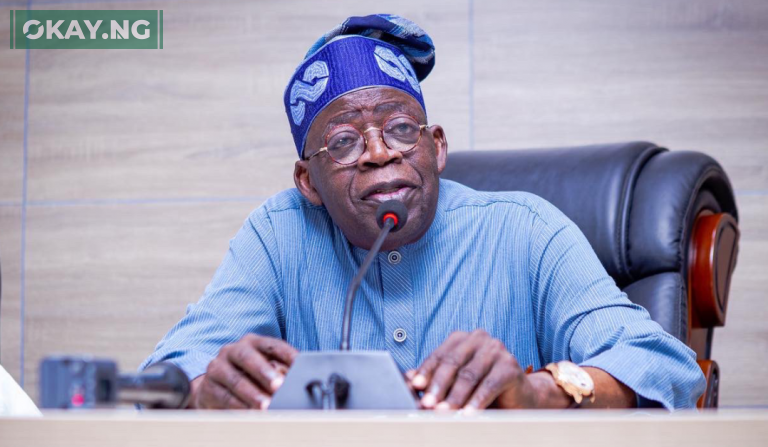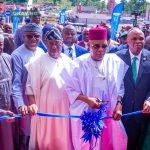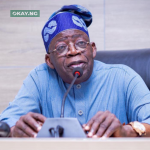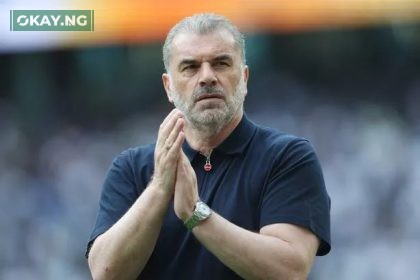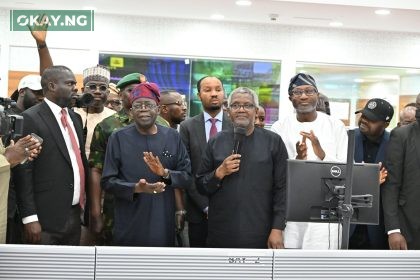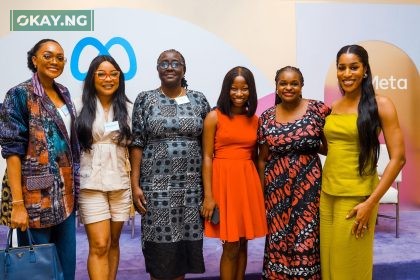President Bola Tinubu on Thursday reaffirmed his administration’s commitment to boosting infrastructure development across Nigeria, emphasizing the need for closer cooperation between the Federal Government and state governors to streamline project approvals.
Speaking at the commissioning of the Lekki Deep Sea Port Access Road adjacent to the Dangote Refinery and Petrochemical Plant in Lagos, Tinubu stressed that aligning building approvals between subnational and federal authorities would accelerate the construction of critical roads and bridges nationwide.
“I have directed the Minister of Works, David Umahi, and the Surveyor General of the federation to work more closely with the governors,” the President said, underscoring the importance of synchronized planning to avoid delays and excessive compensation costs.
Highlighting a recent directive, Tinubu reiterated the Federal Government’s ban on any dredging activities within a 10-kilometer radius of all bridges across Nigeria, calling on governors, relevant agencies, and security forces to enforce this immediately to protect vital infrastructure.
This event followed closely on the heels of the President’s commissioning of Phase 1 of Section One of the Lagos-Calabar Coastal Highway in Lagos, signaling rapid progress on major transport corridors.
Tinubu praised contractors and ministries involved in road development, including Hitech Construction Company, Dangote Industries, and BUA, affirming his administration’s dedication to “building enduring infrastructure nationwide.”
Addressing critics, the President clarified misconceptions about the government’s legacy projects, explaining that the Federal Executive Council approved segmented procurement and construction rather than awarding massive contracts to single contractors.
“The completed 30 km segment of the Lagos-Calabar Coastal Highway is part of the 47.7 km, six-lane Section I contract, not a wholesale 750 km contract, as some have suggested. No contractor has been awarded the entire corridor,” he said.
He also highlighted the revival of the Sokoto-Badagry Superhighway, a project conceived 47 years ago, which spans multiple states and promises to boost agriculture, trade, and industrialization by connecting over 58 dams and arable farmlands to West African trade routes and renewable energy potential.
Tinubu provided updates on progress in Kebbi and Sokoto states, where significant portions of carriageways have been completed or are under construction, and flagged ongoing work on the Lagos-Calabar Coastal Highway’s second section and the Trans-Sahara Trade Route, which will link Calabar to Abuja through several states.
He announced accelerated design efforts for the Akwanga-Jos-Bauchi-Gombe corridor, assuring Nigerians of timely project completion for economic benefit.
Other projects commissioned include roads and bridges across Kano, Plateau, Adamawa, Kwara, Osun, and Adamawa states, while several major road constructions were flagged off, such as sections of the Sokoto-Badagry Superhighway and rehabilitation works in Kaduna, Kano, and Borno states.
Tinubu expressed gratitude to prominent private sector figures—Jim Ovia, Femi Otedola, Abdulsamad Rabiu, and Aliko Dangote—for their investments and contributions to Nigeria’s economy.
Governors from Plateau, Abia, Enugu, Ogun, Borno, and Kaduna states attended the ceremony. Kaduna Governor Sen. Uba Sani, speaking on behalf of his colleagues, thanked the President for subsidy removal, which has increased state allocations for health, education, and infrastructure, and pledged ongoing collaboration.
The President also commended Dangote for his continuous investments, praising the Lekki Deep Sea Port as a transformative project that saves users substantial costs by eliminating the need for trans-shipment.
Aliko Dangote, in turn, thanked President Tinubu for envisioning and implementing the port project and pledged private sector support for nationwide infrastructure expansion.


